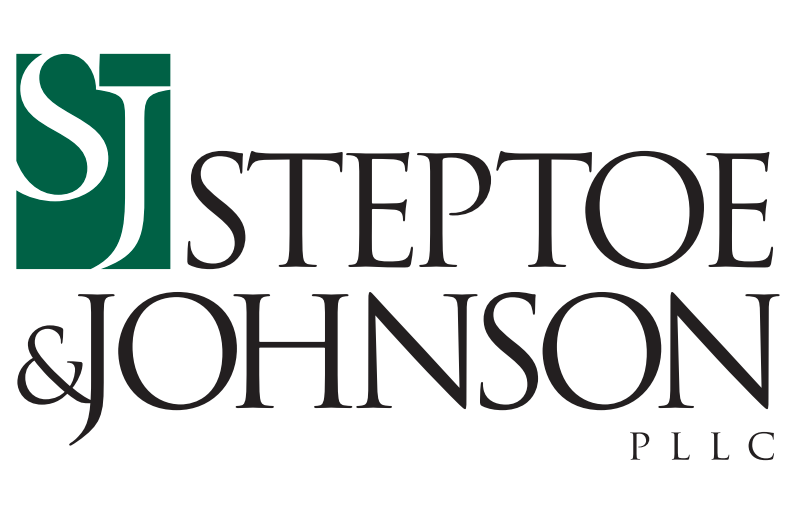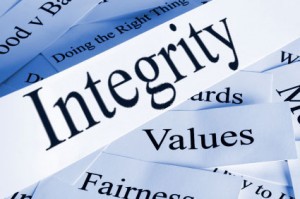| First, a definition of "word salad" and the context in which I use it is necessary. Simply put, it is the use of words or expressions that are used by a particular profession or group of people that are difficult for others to understand." Sometimes, the use of word salad is unintentional, such as a medical professional trying to explain a diagnosis with terms common among doctors but unfamiliar to patients, unaware that this familiarity with complex language is not shared by others. At other times, these terms may be used deliberately as a public relations tactic to win a political campaign where a candidate is instructed to use words favored by the audience to divert attention from a topic they oppose. It is in this latter context of deliberate misdirection that we use "word salad" to describe a troubling situation The Drake Group has been compelled to face in the interest of both accuracy and ethical integrity. Below are the three situations we have encountered over the past 12 months and expect they will continue.
1. Entering into the House v. NCAA settlement [House Settlement] under terms that violate the NCAA Constitution. Over a year ago, the NCAA Board of Governors and Division I Board of Directors voted to approve the House Settlement in violation of the NCAA's constitutional provisions. For a lawsuit involving the NCAA to be settled by the Board of Governors or a division or conference, the NCAA Constitution must first be amended through a full Association membership vote to explicitly authorize the Board of Governors or a division or subdivision to approve settlements. The authority to approve the settlement of a lawsuit can only be delegated to the conferences by a vote of all D-I members. For the House Settlement, no such vote took place. Non-Power Four institutions and conferences were never consulted during settlement deliberations, and the advice of the Division I Council (which has one representative from each Division I conference) not to change the NCAA's pay-for-play prohibition was ignored.
Furthermore, the NCAA Board of Governors seems to have acted improperly violating both its Constitutional authority and the principles of the Constitution. Constitution, Art. 1 (Principles), Sec. B provides:
"The Collegiate Student-Athlete Model. Student-athletes may not be compensated by a member institution for participating in a sport but may receive educational and other benefits in accordance with guidelines established by their NCAA division."
The Board of Governors is responsible for monitoring whether divisions adhere to the principles outlined in Article I. They also have the authority to call for a vote by the entire membership on any division's action they believe conflicts with the core purposes and principles stated in the NCAA's Constitution. Such actions can be overturned by a two-thirds majority vote of those voting. However, they have never convened a special convention to do so.
2. Changing the Meaning of Revenue-Sharing and NIL Payments.
This is where the confusion starts. The implementation of the House Settlement led to the creation of two key terms: "revenue-sharing" and "NIL payments." Revenue-sharing is a pooled fund used to support all sports programs. The term "revenue-sharing" in school sports is widely understood and legally recognized to mean that all revenues coming into the school, such as donations, ticket sales, media rights fees, sponsorships, merchandise licensing, etc., belong to the school not the athletes involved in the revenue-generating sports. The school then has the responsibility to distribute those funds (whether as cash or benefits purchased with the funds) in a way that does not discriminate by sex. The NCAA and its members have made deliberate statements claiming that these cash payments to athletes are not "pay-for-play" benefits. 95 percent of the $2.8 billion in past damages from the House Settlement will go to men's football and men's and women's basketball, with male athletes receiving 90 percent of the funds. The same distribution plan appears to be applied to the $20.5 million in injunctive relief with the amount expected to increase yearly over the next decade. The NCAA is improperly using the label "revenue-sharing" to hide its disregard for its own rule expressed in the above referenced Constitution, Art. 1 (Principles), Sec. B.
Similarly, the same trick is being used for "NIL payments." Typically, NIL payments refers to a license for the use of an individual's name, image, and likeness rights to promote or endorse goods or services offered to the public for profit. If the institution plans to give NIL payments to athletes and these payments are not to be construed as pay-for-play, then such NIL payments should align with the definition of promoting or endorsing institutional goods and services to the public for a profit. Accordingly, any license for using a current or prospective athlete's name, image, and likeness rights should serve a legitimate business purpose related to promoting or endorsing the institution or its intercollegiate athletics program. These promotional opportunities should be equally accessible to male and female athletes pursuant to Title IX and on terms comparable to those provided to non-athlete students promoting the institution or its programs, in either a co-curricular or extracurricular capacity.
To the contrary, the NCAA is practicing "word salad" by giving athletes any amount of cash and calling it NIL payments with no definition or standard applied to NIL payments other than the following:
Each Participating Institution may provide benefits, at its discretion, to a student-athlete as long as the combined value of the new benefits (e.g., additional payments or benefits not currently permitted by NCAA rules or in amounts above those permitted under NCAA rules as of October 7, 2024) provided by or on behalf of the Participating Institution to all student-athletes at the Participating Institution does not exceed the benefits cap at any time during the academic year. –NCAA Question and Answer: Implementation of the House Settlement-June 13, 2025
In other words, an individual athlete or group of selected individuals cannot receive more than $20.5 million in total cash. One restriction does apply; the institution cannot label the payment as a "payment for the right to use a student-athlete's NIL for a broadcast of collegiate athletic games or competitive athletic events"—a dismissive denial of pay for play. NIL payments made today are straightforward recruiting or retention cash incentives that are not tied to educational expenses or purpose and are based on the institution's perception of the value of the recipients' playing ability in relation to the revenue they generate in their respective sports.
3. Glib Denial Attempts to Undermine the Application of Title IX to Revenue-Sharing and NIL Payments.
Title IX bans sex discrimination in athletic programs. Giving more money to male athletes than to female athletes, regardless of the reasons, qualifies as sex discrimination. The law itself, along with its legislative history, regulations, interpretations, and extensive case law, clearly shows there is no justification for treating men's football and men's basketball programs differently when evaluating sex discrimination. Yet, this is exactly what the proposed settlement aims to do.
Plaintiff's lawyer, Steve Berman, has even suggested that conferences may provide payments to athletes irrespective of Title IX. Accordingly, those appealing Judge Wilken's decision to approve the settlement point out that plaintiffs' attorneys improperly instructed their economic expert to ignore the application of Title IX. This attitude is concerning. While the plaintiffs' attorneys may not need to worry about the Title IX implications of the settlement and can focus mainly on the total amount of money for their clients (over 90% of whom are men) and themselves ($515 million in legal fees), everyone else in college athletics must consider the bigger picture and consequences, including compliance with Title IX. Unfortunately, NCAA President Charlie Baker, while generally emphasizing the importance of Title IX, has not provided clear leadership on how it applies to the House Settlement. Instead, he has cast doubt on its applicability to this situation despite the NCAA's position in the House case where it argued that the distribution of funds (allowing different amounts for football and men's basketball as revenue-generating sports) violated Title IX.
Furthermore, the NCAA's publicly available information about the terms of the proposed antitrust settlement does not mention how Title IX relates to its disclosed provisions such as roster and scholarship limits or athlete payments. Instead, the plaintiffs' attorneys and the defendants have said that the implications of Title IX will be addressed by future courts and Congress. News reports show that schools, conferences, and the NCAA are working to find ways to justify ignoring Title IX and to avoid providing female athletes with the same financial compensation and other benefits as male athletes.
If the NCAA and its member institutions fail to understand the Title IX implications of the proposed antitrust settlement, they might find that resolving their antitrust issues mainly in favor of male athletes could lead to liability under Title IX. They are likely to face new problems, legal challenges, and financial burdens. Therefore, we continue working to prevent these unethical efforts from misleading others. _______________
We need your help—please consider becoming a member. We hope you will support our efforts to ensure that any bill reaching the floor of Congress does not mislead the public about revenue-sharing or NIL payments and clearly states the application of Title IX to all benefits provided to college athletes. We are a 100 percent volunteer 501(c)(4) nonprofit organization funded by membership dues and contributions from friends and supporters. If you are not already a member or contributor, we invite you to consider joining us.
Gratefully,
Kassandra
Kassandra Ramsey, Esq. President
| 







